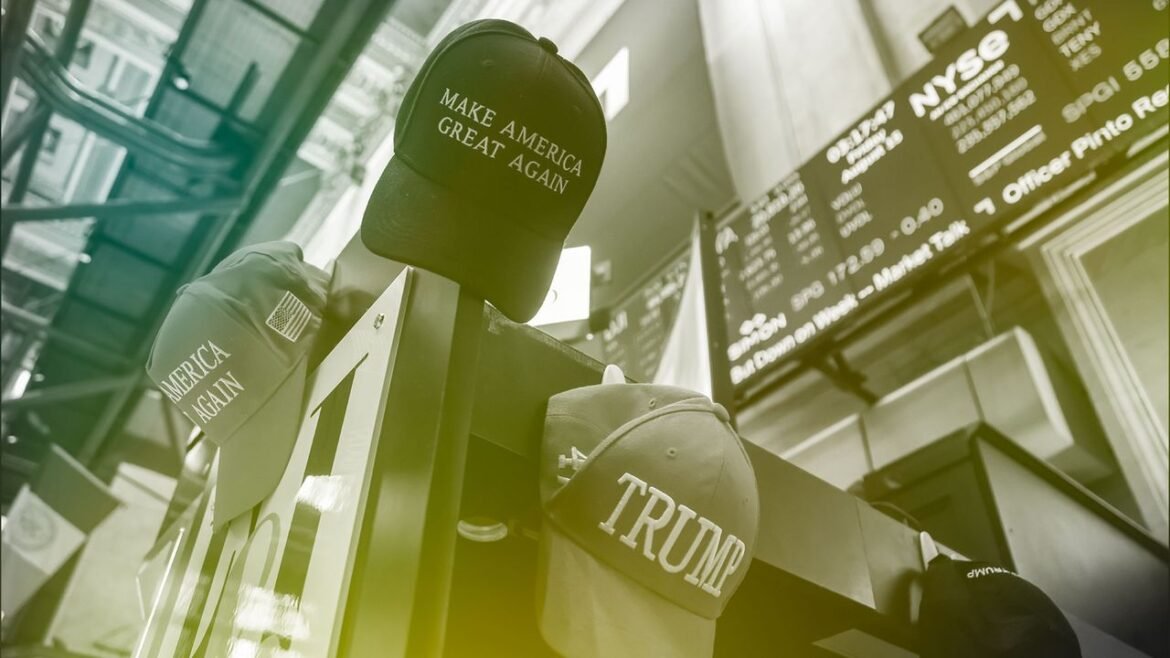Here in this country, Republican opposition to public ownership remains implacable, at least in theory. Conservatives have long argued that government-run enterprises, such as Amtrak and the U.S. Postal Service, are innately inefficient, and attacked even modest public initiatives as dangerous flirtations with socialism. Ironically, however, it’s a Republican President, Donald Trump, who is busy expanding the frontiers of the state by having government agencies take sizable stakes in privately run companies.
In August, the chip manufacturer Intel announced that the Trump Administration would acquire 433.3 million of its shares for $8.9 billion, which translated into an ownership stake of just under ten per cent. This was one in a flurry of deals that has allowed the federal government to acquire either direct ownership stakes or options to purchase ownership stakes in the future, in five rare-earths companies, and obtaining a so-called golden share in U.S. Steel, which it received when the Trump White House approved its sale to the Japanese company Nippon Steel. Although this unusual arrangement didn’t grant the government any ownership rights to future profits that U.S. Steel generates, it gave the President the right to veto certain moves by the company, including decisions to shutter factories or move operations abroad.
To be sure, this isn’t the first time that the U.S. government has acquired stakes in major companies, and the basic principle of rewarding the taxpayer for providing financing to private businesses is a sound one. (Bernie Sanders, hardly a fan of Trump, voiced qualified support for the Intel deal.) During the great financial crisis of 2008-09, the federal government supplied emergency financing to the carmaker General Motors and the insurance company A.I.G., taking ownership stakes of roughly sixty per cent and eighty per cent, respectively, which it subsequently sold off. It also seized control of the mortgage giants Fannie Mae and Freddie Mac, taking an eighty-per-cent ownership stake that it still has today.
These government rescues were all crisis measures. Trump’s stakebuilding, which some observers refer to as “state capitalism,” is more arbitrary and opaque, and subject to his whims. Obviously, he isn’t a socialist, but, if a Democratic President were to intervene in the business sector in the ways that he has, many Republicans would be screaming about creeping socialism.
The Intel transaction grew out of some unfinished business from the Biden Administration, which, through the CHIPS and Science Act of 2022, agreed to give the struggling chipmaker around eight billion dollars in federal grants and eleven billion dollars in loans for the construction of new plants in the U.S. that would help the company catch up with overseas rivals. When Trump returned to the White House, only about a quarter of the promised money had been passed on to Intel, and it wasn’t clear what would happen to the rest. Evidently, the Trump Administration demanded an equity stake in exchange for transferring some of the money, and Intel could hardly say no. The federal government is now its largest shareholder.
The Administration has already used the powers granted by its golden share in U.S. Steel. In September, according to the Wall Street Journal, the Commerce Secretary, Howard Lutnick, heard that the company was planning to shutter a plant in Illinois and told its chief executive that Trump would exercise his right to block the move. U.S. Steel reversed course. This sort of interventionism is anathema to free-market conservatives, and it’s far from clear where it will end. Lutnick has said the Administration is even considering taking ownership stakes in big defense contractors, such as Boeing and Lockheed Martin, presumably as the price of renewing their lucrative federal contracts.
There has also been some speculation that the Trump Administration could end up doing some sort of finance-for-equity deal with a big artificial-intelligence company, such as OpenAI, which is making huge investments in data centers that it needs to train and run its models. According to Sam Altman, the firm’s C.E.O., it has committed to spending $1.4 trillion in the course of the next eight years. Its revenues are growing fast: Altman said that by the end of this year they will be running at an annualized rate of twenty billion dollars. But the company is still spending far more than it takes in, and it needs to raise a great deal of external funding. Last week, Sarah Friar, OpenAI’s chief financial officer, said it was looking to “an ecosystem of banks, private equity, maybe even governmental,” and she raised the possibility of obtaining a federal-financing guarantee, which would reduce the firm’s borrowing costs and shift to the government at least some of the risk if OpenAI were unable to repay its loans. Essentially, if the company underperformed, the taxpayer could be left to pick up part of its tab.



